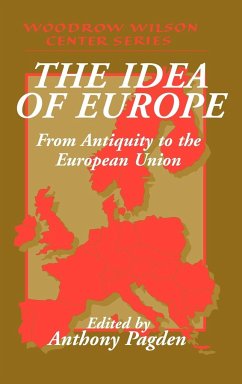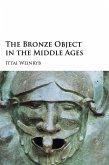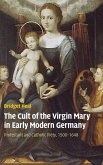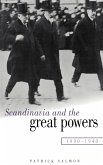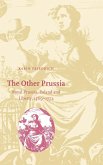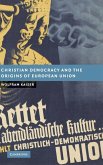The creation of the European Union and the progressive integration of the European states has raised serious questions about the existence of a distinctive European identity. Do the British share much in common with the French, or the French with the Danes? Will a unified Europe remain an economic and political possibility with no greater cultural or affective foundations? If there is something that distinguishes all Europeans, what is it, and how is it being changed by recent events? This book addresses these questions in essays ranging from ancient Greece to the end of the twentieth century. Their authors come from different intellectual backgrounds and represent differing intellectual traditions. They discuss questions of politics, religion, commerce, law, language, literature and affectivity. Taken together, they provide a powerful insight into the historical origins of the idea of Europe and into the future of the European Union.
Table of contents:
Part I: Introduction Anthony Pagden; 1. Europe: conceptualising a continent Anthony Pagden; 2. Some Europes in their History J. G. A. Pocock; 3. 'Europe' in the Middle Ages William Chester Jordan; 4. The Republican mirror: the Dutch idea of Europe Hans Blom; 5. The Napoleonic Empire and the Europe of nations Biancamaria Fontana; 6. Homo politicus and homo oeconomicus: the European citizen according to Max Weber Wilfried Nippel; Part II: 7. The European self rethinking an attitude Michael Herzfeld; 8. European Nationalism and European Union Ariane Chebel d'Appollonia; 9. From the ironies of identity to the identity of ironies Luisa Passerini; 10. Muslims and European identity: can Europe represent Islam? Talal Asad; 11. The long road to unity: the contribution of law to the process of European integration, 1945-1995 Philip Ruttley; 12. The Euro, economic federalism and the question of national sovereignty Elie Cohen; 13. Identity politics and European integration: the case of Germany Thomas Risse and Daniela Engelmann-Martin; 14. Nationalism in Spain: the organization of Convivencia Andrés de Blas Guerrero; 15. The Kantian idea of Europe: critical and cosmopolitan perspectives James Tully.
This collection discusses what it means to be 'European', covering the period from Antiquity to the end of the twentieth century. Addressing politics, law, religion, culture, literature and affectivity, this broad account shows how a distinctive European identity has grown over the centuries, and looks at the European Union's future.
Discusses how a distinctive 'European' identity has grown over the centuries, especially with the EU.
Hinweis: Dieser Artikel kann nur an eine deutsche Lieferadresse ausgeliefert werden.
Table of contents:
Part I: Introduction Anthony Pagden; 1. Europe: conceptualising a continent Anthony Pagden; 2. Some Europes in their History J. G. A. Pocock; 3. 'Europe' in the Middle Ages William Chester Jordan; 4. The Republican mirror: the Dutch idea of Europe Hans Blom; 5. The Napoleonic Empire and the Europe of nations Biancamaria Fontana; 6. Homo politicus and homo oeconomicus: the European citizen according to Max Weber Wilfried Nippel; Part II: 7. The European self rethinking an attitude Michael Herzfeld; 8. European Nationalism and European Union Ariane Chebel d'Appollonia; 9. From the ironies of identity to the identity of ironies Luisa Passerini; 10. Muslims and European identity: can Europe represent Islam? Talal Asad; 11. The long road to unity: the contribution of law to the process of European integration, 1945-1995 Philip Ruttley; 12. The Euro, economic federalism and the question of national sovereignty Elie Cohen; 13. Identity politics and European integration: the case of Germany Thomas Risse and Daniela Engelmann-Martin; 14. Nationalism in Spain: the organization of Convivencia Andrés de Blas Guerrero; 15. The Kantian idea of Europe: critical and cosmopolitan perspectives James Tully.
This collection discusses what it means to be 'European', covering the period from Antiquity to the end of the twentieth century. Addressing politics, law, religion, culture, literature and affectivity, this broad account shows how a distinctive European identity has grown over the centuries, and looks at the European Union's future.
Discusses how a distinctive 'European' identity has grown over the centuries, especially with the EU.
Hinweis: Dieser Artikel kann nur an eine deutsche Lieferadresse ausgeliefert werden.

